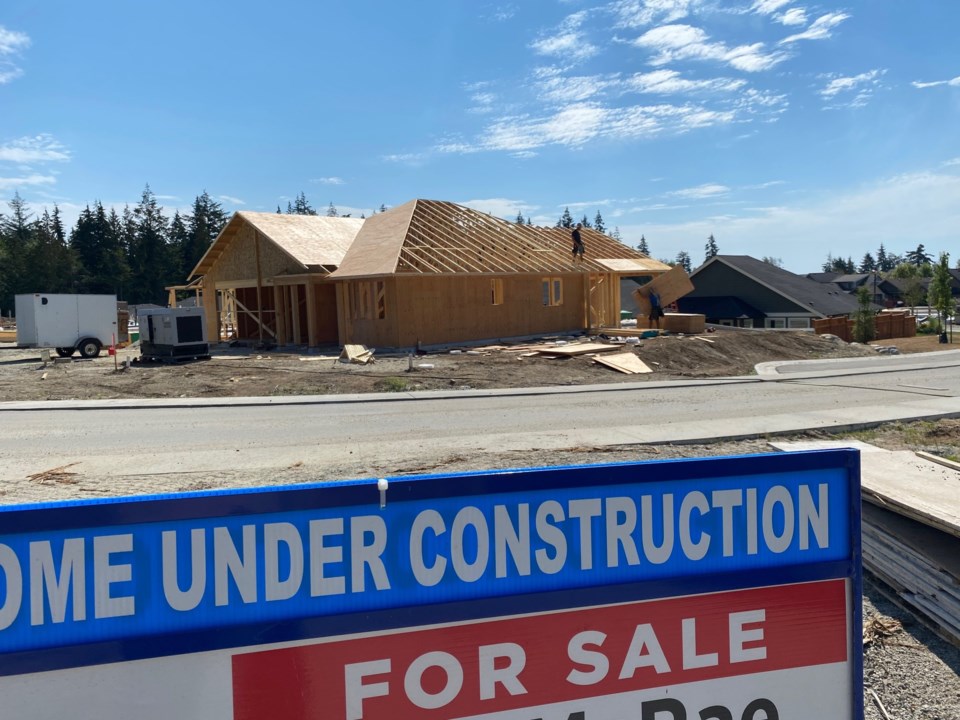The Bank of Canada (BOC) raised its overnight rate by half a percentage point – 50 basis points – today, December 7, to curb high levels of inflation and cool housing prices across the country. It will certainly affect the latter, experts contend.
The seventh BOC rate increase this year will raise the current prime rate from 5.95 per cent to 6.45 per cent at most of Canada’s big banks. Variable rate mortgages are tied to the prime rate and current variable rates are at a discount of 0.6 per cent. Therefore, for every $100,000 in mortgage with a variable rate, this change should result in an increase of approximately $40 per month.
“This hike will undoubtedly challenge homeowners as financial and job security currently remain uncertain for Canadians coast to coast. It is about whether people can hold on over the next few months,” said Leah Zlatkin, a licensed mortgage broker with Lowest Rates.ca.
The following is a look at the recent rate increase could impact mortgage payments. All calculations assume a 15 per cent down payment under $1 million and the required 20 per cent above $1 million and a 25-year amortization period.
According to the Canadian Real Estate Association, which noted home prices have already declined 10 per cent since the first BOC rate hike in February, the average Canadian home sold at $644,643 in October.
With a variable rate of 4.95 per cent, monthly mortgage payments on this home would be approximately $3,260. At 5.45 per cent, monthly mortgage payments become approximately $3,422, an increase of $162 per month
In Metro Vancouver, the benchmark home price in October reached $1,148,900. With a variable rate of 4.95 per cent, monthly mortgage payments on this home would be approximately $5,320. At 5.45 per cent, monthly mortgage payments become approximately $5,584, an increase of $264 per month. (Note: Interest rates for homes over $1 million are uninsured, therefore the current interest rates reflect accordingly at the current lowest rate available.)
According to the Calgary Real Estate Board, the benchmark home price in the city reached $523,900 in October. With a variable rate of 4.95 per cent, monthly mortgage payments on this home would be approximately $2,649. At 5.45 per cent, monthly mortgage payments become approximately $2,781, an increase of $132 per month.
In Edmonton, the benchmark home price was $378,900 in October. With a variable rate of 4.95 per cent, monthly mortgage payments on this home would be approximately $1,916. At 5.45 per cent, monthly mortgage payments become approximately $2,011, an increase of $95 per month.
Interest rates for homes over $1 million are uninsured, therefore the current interest rates reflect accordingly at the current lowest rate available.
Some mortgage professionals see further rate hikes in 2023, perhaps beyond.
“I expect there will be additional rate hikes next year, but they will be more measured and not on every decision date. I also feel that the Bank will refrain from cutting the policy rate until 2024,” said Shelly Cooper, chief economist at Dominion Lending Centres.
Cooper noted that the labour market is very tight and inflation remains a concern.
“Wage inflation came in at 5.6 per cent year-to-year in November, marking six straight months of wage inflation above 5 per cent. While headline and core inflation have moderated from their recent peaks, they exceed the 2 per cent [Bank of Canada] target by a large measure,” she noted.



